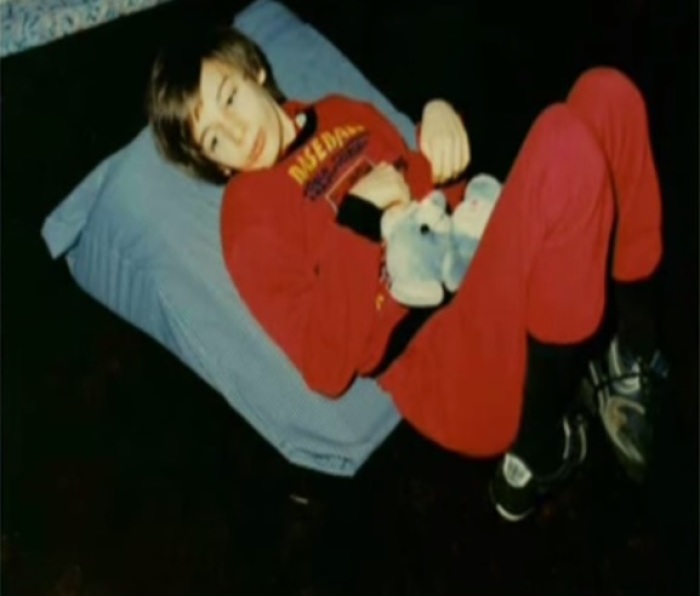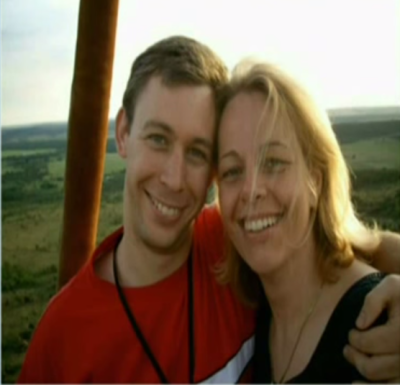Man Awakens After 12 Years in Vegetative State Despite Doctors Saying He Would Die; Becomes Business Owner, Author, Husband

After all hope was lost for a South African boy who was left in a vegetative state for over 12 years, starting from the time he was 12, Martin Pistorius miraculously broke out of his paralyzing trance to eventually become a functioning business owner, husband and author.
In 1988, Pistorius' parents noticed that there was something seriously wrong with their 12-year-old son. They noticed that he wouldn't wake up unless he was awoken and spent most of the time laying down in the fetal position.
The Pistorius family took their son to the hospital. Although the doctors were not quite sure what was wrong with him, they diagnosed him with Cryptococci Meningitis, as The Blaze reports. His condition continued to worsen, leaving Martin unable to move or speak.
After Pistorius failed every one of the hospital's tests for mental awareness, the doctors informed his family that he likely did not have long to live. The family was told to take Pistorius home and make him as comfortable as they could until he ultimately would die.
As Pistorius' mother, Joan, told NPR, the only issue was "Martin just kept going, just kept going" and refused to die.
Although the parents were happy to see Martin continue to live, the daily struggles and hardships on a family taking care of an incapacitated loved one began to take its toll.
Pistorius' father, Rodney, had to rise at 5 a.m. every morning to dress his son and take him to a special care center, and then later in the day he would pick him up, take him home, bathe him, feed him, put him to bed, and wake up every two hours to flip his son over on his side so he wouldn't get bed sores.
As Pistorius' vegetative condition went years without showing any signs of improvement, it began to be too much for his mother to handle without breaking down mentally.
"I hope you die," Joan Pistorius recalled telling her son. "I know that is a terrible thing to say. I just wanted some sort of relief."
Although years went by without Pistorius giving any indication that he was mentally present, Pistorius says he began to regain his thoughts around the time he was 14 or 15. However, his thoughts were not pleasant ones. His thoughts would tell him that he would spend the rest of his life in that condition and he began to accept that he would forever be alone with just his thoughts.
With thoughts like, "No one will ever show me tenderness," "You are doomed," and "No one will ever love me," Pistorius thought it was best if he found a way to tune out his thoughts and just "simply exist."
"You don't really think about anything," Pistorius told NPR. "It's a very dark place to find yourself because, in a sense, you are allowing yourself to vanish."
After a while, Pistorius began to re-engage his mind. Although he was a vegetable, he clearly remembers his mother telling him that she wished he would die. He spent some time grappling over why a mother would say such a thing to her child.
"As time passed, I gradually learned to understand my mother's desperation," Pistorius said. "Every time she looked at me, she could see only a cruel parody of the once-healthy child she had loved so much."
As Martin felt better about taking on his own thoughts, his body began to get better. Unexplainable neurological developments allowed Pistorius to regain upper body strength, although he never regained his voice.
At the age of 26, Pistorius passed a test where he had to identify objects in a room by pointing to them with his eyes. After that, Pistorius' mother quit her job to teach Martin how to use a voice program on a laptop that would help him communicate with society.
Having regained much of his upper body strength, Pistorius began using a wheelchair to move around.
After mastering the voice software, Pistorius began to teach himself how to read and write. In 2003, Pistorius got a job with a local government health care office working one day a week. After Pistorius got bored with his job, he quit and went to college to study computer science, where he learned how to build websites
"I wanted to prove I could do more than just speak words via a laptop," Pistorius said..
"Martin achieves everything he wants to and more," his mother added.

Although Pistorius feared as a vegetative kid that he would spend his whole life alone with just his thoughts, Pistorius would never be alone again once he met his sister's friend, Joanna, who would become his wife in 2009.
Upon first meeting Joanna, the two of them talked for hours. Joanna would talk and Pistorius responded with his voice software. Joanna, who works with disabled people in her career, said she was drawn to Pistorius because he understood her sense of humor and he was so honest and open about everything he had been through.
"He is in a wheelchair and doesn't speak. But I love this guy," Joanna said. "He is amazing and it just so quickly turned into love."
According to the Daily Mail, Pistorius proposed to Joanna in a hot-air balloon in December 2008 and they got married that next June. Pistorius said Joanna helped him to comprehend a Bible verse that was going to be read at their wedding ceremony.
"It was she who has taught me to understand the true meaning of the Bible passage we were having read at the service: 'There are three things that will endure — faith, hope and love – and the greatest of these things is love,'" Pistorius told the Daily Mail.
Martin and Joanna now live in England, where Martin started his own web design company.
Pistorius has since written a memoir of his life titled Ghost Boy: My Escape From a Life Locked Inside My Own Body.




























